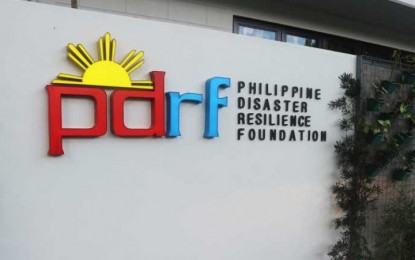
Philippine Disaster Resilience Foundation (File photo)
MANILA – The Philippine Disaster Resilience Foundation (PDRF) conducted a Public Service Continuity Planning (PSCP) for national government and local government units to amplify the importance of public and private sector partnership when dealing with disasters and other crises.
Representatives of the Makati and Quezon City governments participated in the roundtable discussion, held in partnership with the Office of Civil Defense (OCD) at a hotel in Cubao on Friday.
It was part of PDRF’s “Project KoNeK” (Komunidad at Negosyo tungo sa Katatagan or Communities and Businesses toward Resiliency), which aims to capacitate local communities with disaster risk reduction and management capabilities.
Veronica Gabaldon, PDRF executive director, said in a statement over the weekend that Project KoNeK arms LGUs and national line agencies with crisis preparations.
Officials of Manila Water and Maynilad, Metropolitan Waterworks and Sewerage System (MWSS), and OCD-National Capital Region also ensured that there will be no water supply interruption during a disaster.
As in previous PSCP meetings, it was determined that water, electricity, and telecommunications are critical lifelines and utility companies were assumed to secure the delivery of these services during a disruption.
PDRF president Butch Meily emphasized that water is an essential commodity.
“It is critical to ensure its continued delivery during any type of disaster. We hope the session will make for a stronger partnership between the public and private sector that can be replicated with the other lifeline service providers such as power and telecommunications,” Meily said during the meeting.
The vulnerability assessment identified the heavy dependency of LGUs on water concessionaires to ensure supplies during a worst-case scenario; inadequacy of current alternative water sources such as water tanks, cisterns, and trucks; and severe impact of water interruption in hospitals, health centers, markets, evacuation centers, clinics, and other entities providing protective services.
Among the solutions discussed were stronger collaboration between LGUs and the water concessionaires and determining policy recommendations to improve the continuity of supply.
Manila Water, Maynilad, and MWSS recognized the importance of interconnectivity and partnership with government counterparts as well as the need to build a culture of preparedness in any disaster. (PNA)
